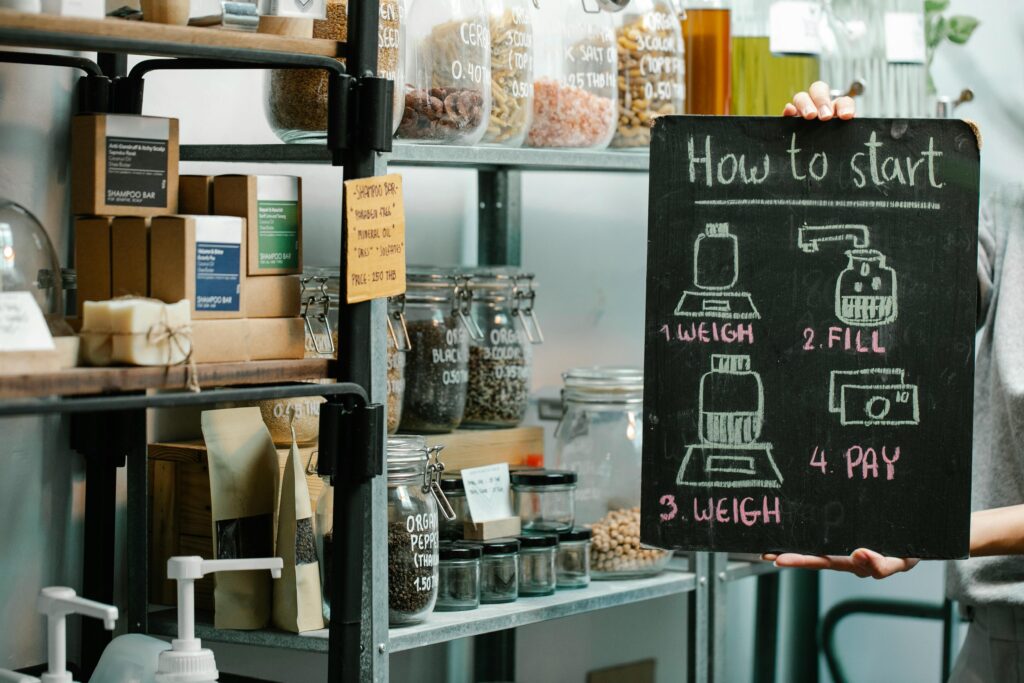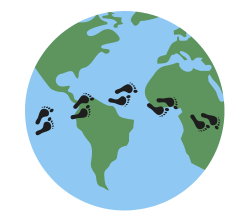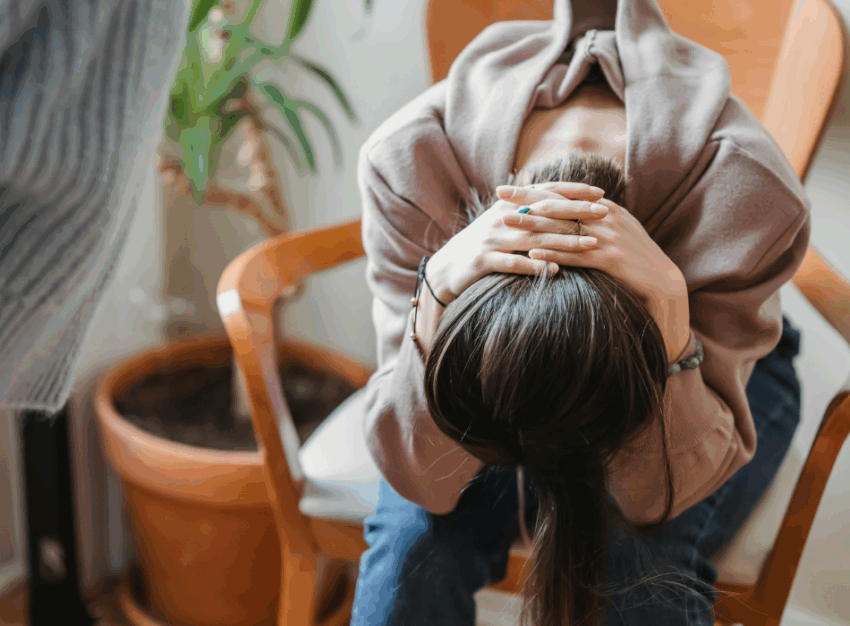When I’m entering a business for the first time, it normally goes something like this: I feel anxious as I approach the business, unsure how the store will be laid out or what the expectations are. My anxiety means that I am stuck in my head, and it influences my behaviour so that I act more timid than usual. I feel I am being awkward when I interact with the staff. I replay the interaction after the fact, noticing all the ways it could have gone better.
This social anxiety is often heightened when it’s an eco-friendly business, which may have more norms around how to behave. Just think of entering a bulk store for the first time and not knowing the rules around bagging and weighing your purchases! Or it even comes up when making a special request at a “regular” business, like asking them to put my food in a reusable container.
Social anxiety can apply to other sustainability scenarios as well. For example, I may avoid asking a question or sharing my opinion at an environmental event for fear of seeming stupid.
I firmly believe that just about any topic can be connected to sustainability. In this post, I explore the connections between social anxiety and sustainability!
What is social anxiety?
Social anxiety disorder is a mental health condition in which one fears being embarrassed, judged or rejected. This means that one is afraid of social situations, such as speaking with a cashier, meeting a new person, attending a party, giving a presentation, doing a job interview or even taking the bus. The specific situations that cause the most anxiety will vary from person to person.
People with social anxiety may avoid social situations entirely. They experience anxiety leading up to social gatherings and ruminate afterwards about how the situation went. If they do participate in social situations, they may avoid eye contact, speak quietly, and have physical symptoms like blushing and shaking.
Learn more about social anxiety in this article from Mayo Clinic.
How does social anxiety relate to sustainability?

A big part of social anxiety is the fear of being judged—one fears being considered weird, stupid, boring, incompetent or some other negative trait. The sustainability and zero waste movements are full of ideas about how one “should” behave. For example, that one should recycle or avoid single-use plastics. The trouble is that these ideal behaviours can turn into a standard that people are judged against.
People who care about protecting the planet and also have social anxiety may fear judgement from all sides: by other environmentalists for recycling wrong or being uninformed, by the clerk at the bulk food store for not knowing how things work, by their peers for being different and using eco-friendly products …
This fear of judgement can then influence behaviour. Those with social anxiety may avoid adopting eco-friendly habits, talking with their friends about climate change or attending a climate protest out of fear of not fitting in. They may end up isolated from those who hold similar values, even though we know that connection is a key component of climate action!
Remember: everyone has a place in the sustainability movement!
For more on this topic, check out this article from the National Social Anxiety Center on the connections between social anxiety and eco-anxiety.
How can you overcome social anxiety in a sustainability context?
The treatment for social anxiety in a sustainability context looks similar to general treatments for social anxiety. Depending on the severity, you may decide that it would be beneficial to see a therapist, who can guide you through the process. But there are some things you can try on your own as well!
Work on changing your thought patterns: One of the main treatments for social anxiety is cognitive behavioural therapy, or CBT. One of the big planks of CBT is addressing thought patterns. People with social anxiety often have what are known as cognitive distortions. For example, they might assume that they know what other people are thinking about them or focus only on the negative aspects of a situation. It helps to put things in perspective—for example, is it realistic that the store clerk is still thinking about and judging you hours later?
Try exposure therapy: Exposure therapy involves gradually exposing yourself to situations that cause you fear. This helps show your brain that you are capable of handling them. You start by making an exposure hierarchy that progresses from situations that only cause you a little anxiety to situations that cause more anxiety. For example, you might start by asking a question to a clerk at an eco-friendly store, and repeat that action until you feel comfortable, then work your way towards attending an event or calling your elected representative. Over time, you will develop a thicker skin—I swear!
Try individual actions: If interacting with other people and participating in group activities feels too intimidating, individual sustainability actions are a good way to contribute to the environmental movement! There are lots of suggestions on my blog. For example, you might want to try planning your meals to reduce food waste, reducing paper use or taking shorter showers.
Connect with others: It may seem counter-intuitive, but connecting with others can help you overcome your social anxiety related to sustainability! Try opening up to a family member or close friend about how you’re feeling. Alternatively, a social anxiety support group could help you realize that you’re not alone and practise social interactions in a safe setting. You could also look for a welcoming environmental group in your community and attend a chill activity like a cleanup, nature walk or community garden.
See a therapist. If you have that option, seeing a therapist can be a helpful way to work through your thoughts, feelings and behaviours. The therapist can help you address your negative thoughts and change your behaviours, so that you can move towards living the life you want. Bonus points if the therapist is climate aware!
Being sustainable when you have social anxiety
Trying to live a sustainable lifestyle is hard enough as it is. Having social anxiety doesn’t help since you fear being judged for your environmental efforts. Start small by picking one or two actions to try!
I hope these suggestions make it easier for you to navigate the intersections of sustainability and social anxiety, so that you can focus more on helping the planet and less on what people are thinking of you!
I want to know: Have you ever felt social anxiety around being sustainable? How have you managed it?
Categories and tags:
Share this post:

